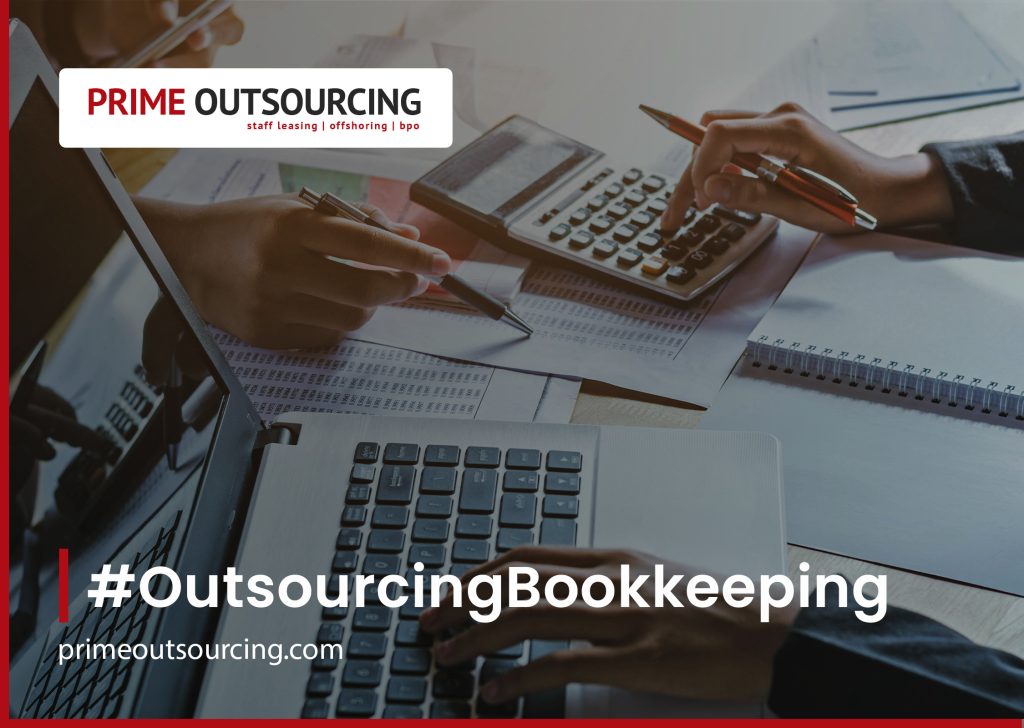
To succeed in your business, being hardworking is not enough. You cannot just work hard alone and receive your desired result. It must also come with being smart. Being intelligent and hardworking will not only give you the sought-after outcome, but it will make your everyday operations more efficient. How can you know if you are working the smart way? Let me introduce you to outsourcing bookkeeping services.
Every company wants to have a reliable measure of its performance. To have this, you need a source of information on where you will base your strategic decisions. Thus, bookkeeping is here to help you identify your benchmark sale and profit targets.
How do you manage your Bookkeeping? The simple answer: outsourcing. Outsourcing your bookkeeping can be a powerful tool. Imagine the positive impact that reducing these tasks would have on you and your team. First, let’s know what Bookkeeping is.
History of Bookkeeping
The practice of bookkeeping is not new. Records show financial and numerical records from historical artifacts in almost every ancient civilization. It then proves that bookkeeping existed as far back as 6,000 BC.
Researchers have found commercial agreements in the remains of long-gone major kingdoms like Babylon and archives documenting the meticulous recording of bookkeeping for agricultural produce in Ancient Greece and the relatively modern Roman Empire.
The roots of bookkeeping started in the 15th century. The history books have two entries for who authenticated the double-entry system. Some refer to Benedetto Cotrugli and his 1458 book ‘Commerce and the Perfect Merchant’ while others refer to Luca Pacioli in his 1494 book ‘Review of Arithmetic, Geometry, Ratio, and Proportion’.
Most people consider Pacioli because of his comprehensive description of the double-entry system, the current standard accounting system. He even explains how to use different bookkeeping tools like journals and ledgers. His efforts earned him numerous honors, including “father of modern bookkeeping.”
What is Bookkeeping?
Bookkeeping is the process of daily recording your business’s financial transactions into organized accounts. It can also refer to different registration techniques that companies may use.
It helps show how small businesses is performing. Your company can track all information on your books to make vital operational, investing, and financing decisions. By maintaining transaction records, you can create accurate financial reports that help measure business performance. Detailed records will also be helpful in the case of tax filing.

What is a Bookkeeper?
A bookkeeper is a part of the accounting profession who is principally responsible for accurately recording all purchases, sales, and other financial activities. A bookkeeper provides accurate and up-to-date financial information about a company.
The types of transactions that a bookkeeper accounts for and their recording process can differ significantly depending on the preferences and practices of various institutions. Their reports are typically sent to managers and business owners to help them make decisions.
Responsibilities
- A Bookkeeper maintains records of financial affairs by setting up accounts, accounting dealings, and ensuring compliance with legal requirements.
- It also develops an accounting system for financial proceedings by creating a chart of accounts. It defines accounting policies and procedures.
- Responsible for managing subsidiary accounts by validating, assigning, and posting transactions.
- Reconcile the accounts of subsidiaries by reconciling the journal entries.
- It maintains the ledger by transferring summaries of sub-accounts.
- The bookkeeper creates a balance sheet to reconcile general ledger balances.
- It maintains historical records by submitting documents.
- Likewise, they collect, analyze, and summarize account information and trends to generate financial reports.
- Lastly, it complies with federal, state, and local legal requirements by researching them, ensuring compliance with requirements, reporting files, and advising management on necessary actions.
Qualifications
Your accounting department’s key important employee is the Bookkeeper. Before these financial files or reports go to an accountant, the process of keeping and organizing these files starts with a bookkeeper.
Even if you have the most proficient accountant, the operations will deteriorate if you fail in bookkeeping. Here are the qualifications for a proficient Bookkeeper to guide you in choosing one for your company.
Education
- A Bookkeeper must have a Bachelor’s degree in accounting, finance, or any related field.
- Completed BAS Agent registration and completed at least Certificate of Bookkeeping IV or Accounting IV certificate.
- Bookkeeping experience is preferred. Having experience working with different legal entities under various legal umbrellas is a plus.
- Being a Certified Public Accountant is an advantage.
Skills
Aside from education and experience credentials, you must also see if they have the following abilities or skills required for bookkeeping.
Attentive to details
Since Bookkeepers handle financial details for a business/customer, they must be attentive to details. They must ensure that all the data they record is accurate down to the last penny. They handle large amounts of financial and business data every day. They need to reconcile accounts receivable, keep accurate details of all financial reporting, and calculate even the smallest financial details. Further, they have to update the company.
Having an attentive Bookkeeper, you can adequately track your financial process and ensure that your company follows policies, meeting all ethical obligations and integrity measures.
Can communicate effectively
As a small business owner, you would want to know the updates in your company. Thus, you must have a bookkeeper that can communicate effectively. They must present information professionally and understandably to clients in person and through electronic communication.
Likewise, they must explain technical/financial issues clearly and uncomplicated. Understand the stakeholders and audiences they communicate with and give clear reports on financial performance and any issues.
Organized
Good organizational skills can help you save time and lower stress. A concrete and organized bookkeeping system is the basis of business success. Everything in business is fast-paced, so things should always be ready before the due date. Your bookkeeper must meet tax, VAT payment, and fiscal year-end deadlines.
Consequently, you must have a proactive time bookkeeper who can organize your schedule effectively. Having an organized bookkeeper can increase the company’s productivity, increase your income, and reduce your risk.
Mathematical skills
Numerical skills are essential in bookkeeping. They will use their mathematical skills in balancing books and calculating grand totals for a series of transactions. Math expertise is not required to succeed as a bookkeeper. However, what is needed is confidence and the ability to add, subtract, multiply, and divide as well as use decimals, fractions, and percentages.
Software Skills
Much of today’s bookkeeping is handled by computerized accounting systems — a stark contrast to the traditional method of recording numbers and figures. Manual accounting still exists but has been surpassed by its software counterpart as a more efficient way to handle bookkeeping tasks.
There are accounting software programs on the market, most of which follow the same basic pattern for recording financial reports and preparing financial statements. It is important to acquire excellent knowledge of at least one of these software packages as a bookkeeper is expected to use accounting software in almost any organization.
Systems like Xero Bookkeeping, Sage, and Quickbooks are world-renowned examples of simplicity and user-friendliness. Microsoft Excel and computer navigation are essential skills a Bookkeeper must have to perform her duties. Any software package a bookkeeper has a working knowledge of should be prominently displayed on their CV.
Self-Discipline
The duties of a bookkeeper are stressful. They have to ensure everything is accurate. They have to check that there are no commas, decimals, or out-of-place numbers. They must also update each employee to ensure they give the needed information. Everything should be done adequately because a simple mistake can cause discrepancies.
The financial health of your entire company can be based on the integrity and ethics of your bookkeeper in handling its money. You have to ensure your bookkeeper has the self-discipline to manage stress and work under pressure.
Problem-solving skills
Another duty of a bookkeeper is to ensure that the system works accordingly. They will be the one to see any irregularities and have to find out where it lies. A bookkeeper should define it and find the means to solve it without affecting the data results. This situation will challenge the bookkeeper’s judgment in determining the best way to solve the problem.
A bookkeeper often faces identifying potential financial conflicts, identifying the cause of money or credit card irregularities, and resolving them. So when hiring a bookkeeper, you must ensure he is competent enough to face these situations.
Difference between a Bookkeeper and an Accountant
Bookkeeping and accounting services might be the same, but in a sense, bookkeepers are on the front lines since they keep track of how money enters and leaves a business daily. Bookkeepers maintain a firm’s financial reporting, including day-to-day transactions in a database.
Meanwhile, Accountants use the data bookkeeper’s track to produce reports, spot significant trends, and create projections since they are more interested in the big picture. They work on documenting, summarizing, analyzing, consulting, and reporting financial information for a business.
Ensure you know the difference between both professions so you will not be confused when outsourcing bookkeeping services.
Types of Bookkeeping Systems
After knowing the definition of bookkeeping and where it originates, it is also significant to know the different types of bookkeeping systems.
Single Entry Bookkeeping System
The single-entry bookkeeping system is also known as the Simple Entry System. This system records all transactions like accounts payable in a single journal or ledger sheet. A business can keep track of its transactions and ensure things are running smoothly.
The single-entry accounting system requires recording an entry for each financial activity or transaction. It records daily receipts or generates daily or weekly cash flow statements.
One of the benefits of using a simple entry bookkeeping system is that it’s uncomplicated to use. So if you don’t have the time or skills to learn a more complex system, this may be the best choice.
Another advantage of the single-entry bookkeeping system is usable anywhere. You can use this system wherever you go because you have access to a computer with an internet connection. It is beneficial for small businesses that need to make frequent trips between locations.
Double Entry Bookkeeping System
A double-entry bookkeeping system is a popular way to keep track of your finances. It involves recording your transactions twice: once in the bookkeeping system and once in a physical journal. The double-entry bookkeeping system requires a double entry for each financial transaction. It provides checks and balances by recording a corresponding credit entry for each debit entry.
It lets you track every transaction, including accounts receivable and accounts payable. It can help you avoid making mistakes and keep your business running smoothly.
There are several benefits to using a double-entry bookkeeping system. First, it will help you stay organized. If you have more than one account for your business, like a checking account and a savings account, it’s easy to lose track of which credit card contains money.
Another benefit of a double-entry bookkeeping system is that it will help you avoid fraud. If someone steals your money from one account, robbers would need access to both books to steal from both.
Methods of Bookkeeping
Here are the methods you can apply for your company’s bookkeeping.
Cash-basis accounting method
It mainly recognizes income and expenses during cash flow receipt or disbursement. It records all transactions in cash form.
It has two main advantages: it’s simple to understand and easy to reconcile. It records each transaction in the company as an expense in one account, and it records a corresponding receipt or payment in another account. Because these accounts are linked, each transaction affects both accounts and is easy to reconcile.
To perform a reconciliation, It totals all the expenses and other accounts to determine the cash flow or debt generated or spent during a specific period.
The cash-basis accounting method is suitable for small businesses with relatively few transactions each year, which need to keep records internally and don’t need to reconcile complex transactions with external sources.
Accrual accounting method
It is a method of accounting services that records transactions when an asset or liability is created or an expense is incurred. This type of accounting is for businesses that must meet regulatory requirements, such as financial institutions and governments.
This method recognizes the revenues and expenses as they occur rather than when they are paid. It follows the principle whereby income and expenses must be accounted for in the same period.
It provides a more accurate picture of the business’s financial position. It allows managers to track their company conveniently.
It also allows you to track your small business assets and liabilities as they are acquired and used.
The modified cash-basis accounting method
It is a method of accounting that includes both current and non-current transactions. This method records all expenses incurred and paid, regardless of when the cash is received and in accounts payable.
This type of accounting is more common in smaller organizations and used by companies that can’t afford to keep large amounts of cash flow. Private businesses also use this even if they don’t need to report their financial information to the federal government.
It has two main parts: short-term and long-term assets. Short-term assets are items that are in use for one year or less. While the latter are items that have been in use for more than one year.
Principles of Bookkeeping
You must also be familiar with the principles of bookkeeping. It can be your guide as you avail of outsourced bookkeeping services.
Revenue Recognition Principle
The revenue principle dictates a bookkeeper can record a transaction as revenue on the books of accounts. This principle recognizes a transaction as an income the company generates during the sale.
It is when a business recognizes revenue when a service or product is provided to the customer, not when money is received. This means that the company generates revenue when it receives the goods or renders the service, regardless of the timing of payment for the transaction to the seller.
Expense Principle
The expense recognition principle states that expenses are recognized in the same period as the related revenue. This is when an accountant can post a transaction as an expense in the ledger.
This means you will incur costs when you receive goods, make purchases, or provide services, regardless of when the transaction is billed or paid for.
Matching Principle
The matching principle dictates when the bookkeeper records income and all associated expenses. It is mainly for recording income and expenses.
Businesses must record expenses in addition to revenue generated. Ideally, both are within the same period for the clearest tracking. This principle recognizes that firms must spend to generate revenue.
Cost Principle
The cost principle states that the actual cost of the item on the books should be used, not the resale cost. Likewise, the items must be recorded at the price paid.
Similarly, once a buyer purchases a product, it is recognized based on the price paid. In other words, the cost principle corresponds to the amount paid for each transaction.
Objectivity Principle
The objective principle states that accountants use only factual and verifiable data from books, not subjective value measurements. A company’s economic data must be based on verifiable data.

Why is bookkeeping important?
Bookkeeping is substantial for your company because it handles all your financial documents. It is more likely your vault of treasures where all the crucial documents for your business are kept.
It also prepares you for tax filing to meet government regulations. Having an efficient bookkeeping system is also beneficial as it can aid you in making business decisions and planning strategies, and you can also see your business targets easily.
By acknowledging how vital the role of bookkeeping is in your business, you must be careful in choosing the right bookkeeper. However, this would take not only time but effort and money in looking for one. It would be laborious and costly, thus outsourced bookkeeping services for your business might be the best option.
What does it mean to Outsource Bookkeeping?
It is a business process where you hire a third-party company to work on your bookkeeping-related duties full-time. It is where you obtain accounting and bookkeeping services offshore or outside your country instead of having an in-office bookkeeper.
On top of that, your outsourced bookkeeping Philippines company will provide you with a proficient bookkeeper responsible for your company’s recording and managing your business financial activities, including purchases, expenses, sales, invoices, and payments. They will record your financial data in general ledgers used to create balance sheets and income statements.
Bookkeeping in the Philippines
In the Philippines, to become a professional bookkeeper, a Filipino must pass the Certified Bookkeeper Level 1 program. It is a certification program in the basics of accounting. This program requires a Filipino to be either a graduate with a bachelor’s degree in business or accounting or a student with at least three units in accounting.
This program aims to expand and consolidate participants’ basic accounting skills. It also helps reassure employers and clients that credential holders have the necessary knowledge, skills, experience, and ethics to provide outsourced bookkeeping services.
The CB program covers studies from an overview of the accounting services cycle to preparing and completing financial statements.
After taking and passing this program, a Filipino wanting to be a bookkeeper should also pass the Certified Public Accountant Licensure Exam (CPALE) or the Bookkeeping National Certification II Assessment Exam.
Bookkeeping in the Philippines is no joke. Bookkeepers went through a lot of studying and reviewing in passing exams to reach their positions. It is done to ensure that every Filipino bookkeeper is competent enough to maintain every financial record and document of companies that will hire them.
The meticulous process of becoming a bookkeeper can guarantee that when you outsource bookkeeping services in the Philippines, it is the best choice for your business.
6 Benefits of Outsourced Bookkeeping in the Philippines
The bookkeeping profession in the Philippines is tough to achieve. It ensures that the country will produce top-notch bookkeepers to safeguard your financial records. After knowing the basics of bookkeeping, let us now know its advantages.
1. You will work with Professional Filipino Bookkeepers
To become a Certified Bookkeeper, Filipinos must pass and undergo four years of study related to bookkeeping. Filipinos also need to pass certifications and exams to become Official Bookkeepers.
The years of study, review, and experience before becoming a bookkeeper assure that this profession here in the country offers excellent work for your outsourced accounting department. Outsourcing in the Philippines will give you confidence that your bookkeeper will work diligently and competently. It will provide impressive bookkeeping services to help your company reach its goals.
2. You will get affordable yet top-quality work
BPO companies in the Philippines offer the most affordable bookkeeping outsourcing services. As proven by Philippine Star (2021), the country’s BPO services cost around $12-14 per hour with a premium service.
It’s a common conception that its quality is not good when something is affordable. However, outsourcing disapproves of this belief because they invest heavily in their people, processes, technology, and infrastructure, ensuring that outsourcing services are delivered with quality and superior quantity.
These BPO companies reinvest their earnings in quality management and training. They also fund the use of the most advanced technologies and modern facilities.
3. Cultural Compatibility is an advantage
Going back to Filipino History, It is a fact that Filipinos have distinct Asian roots with strong Western traditions. Modern Filipino culture has developed under the influence of Chinese merchants, Spanish conquistadors, and American rulers.
Having been colonized by Western countries, Filipinos grew up following Western media and have much in common with their culture. This cultural similarity is vital in ensuring bookkeeping services work effectively with a service provider in the Philippines.
4. Filipinos’ work schedule flexibility
The Philippine BPO workforce is aware of time zone differences, so they promote and support flexibility to support your business. They can work a night shift to attend to your business operations needs. They also provide a framework for paid overtime that you can take advantage of.
More than that, they can also offer you an expansion of a team that can work for your other business operations.
5. Filipino Bookkeepers’ Firm Work Ethic
Filipino Bookkeepers have a firm work ethic. Generally, Filipino professionals take pride in their work and value building good relationships with their workmates and clients.
They apply values centered around the importance of work, particularly reflected in the desire and determination to work hard. They are also responsible, resourceful, calm under pressure, inquisitive, and proactive. Therefore, rest assured your financial records are safe and sound with Filipino Bookkeepers.
6. The Philippines Strong Government Regulations
The BPO industry in the country is highly recognized by the Government and paved the way for facilitating its growth. It made means to provide infrastructure and the implementation of laws to protect, secure, and support the BPO sector.
It also ensures that BPO operations are secured since it involves gathering data. The Data Privacy Act passed by the Philippine government in 2012 ascertains that privacy standards align with international standards. Under this law, strict regulations are in place to protect valuable and confidential data from unauthorized access. Hence, your company’s offshore operations are safe under legal legislation.
Take a moment to think about why you may need to outsource your bookkeeping and what can be done by doing so. If you are taking this journey as part of larger business growth and learning plan, you have to make sure that you will choose the right outsourcing company.
Let your business grow and thrive with the assistance of a professional bookkeeping services provider. You’ll find the trading process easier, you’ll make better decisions, be in a healthier state of mind, and will be able to focus on what matters most, improving your small business full time.
Prime Outsourcing Bookkeeping Services
It’s true. Outsourced bookkeeping and outsourced accounting services can simplify workflow and save you time. And with a professional business partner on your team, you don’t have to worry about the day-to-day operations of your business. If you’re looking for a bookkeeping service that provides support from a certified public accountant, Prime Outsourcing is likely the option worth exploring. The full-service option puts you in contact with their CPA to ensure your books are handled correctly.
Prime Outsourcing is valuable because we can meet and exceed your bookkeeping and accounting needs. Outsourced accounting and outsourced bookkeeping services give you an advantage in this industry. With our level of specialization, we can go beyond the automated tools you may have used in the past, and you will be able to focus more on your business full-time. Our clients enjoy our superior service and benefit from decreased costs and increased profitability. Let us do the work for you. Contact us today!



